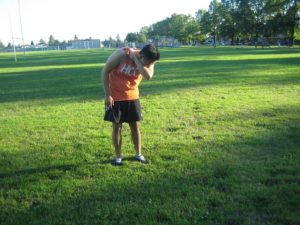Dry mouth can make it difficult to talk, eat, swallow, taste food or wear dentures. In most instances, treatment at home can alleviate the symptoms. A persistent case can lead to mouth infections, dental cavities and gum disease.
What are the causes?
- Dehydration
- Breathing via the mouth
- Anxiety or stress
Frequent sips of fluids throughout the day specifically water. - Smoking
- Functionality issues with the salivary glands
- Aging
- Medications such as diuretics, decongestants or antihistamines
Home treatment
Treatment at home can alleviate the symptoms of a dry mouth such as:
- Frequent sips of fluids throughout the day specifically water.
- Provide ice chips and sugar-free products such as hard candy, gum, soft drinks and frozen fruit juices. These can help keep the mouth moist without increasing the risk for tooth decay.
- Tart foods and beverages should be consumed such as sugar-free sour candies, lemonade and dill pickles to stimulate the flow of saliva.
- Increase intake of fluids to allow easier chewing and swallowing such as drinking water with meals.
- Use over-the-counter saliva substitutes that can be purchased in pharmacies.
Prevention
Remember that dry mouth is common but can be prevented with the following:
- Drink up to 2 liters of water in a day. This is equal to 8 250 ml glasses of water.
- A humidifier should be used in the house especially in the bedroom.
- Avoid breathing via the mouth.
- Do not use medications that can cause a dry mouth such as antihistamines, diuretics and decongestants.
- Avoid tobacco, alcohol and caffeinated beverages since they can increase dryness in the mouth.

